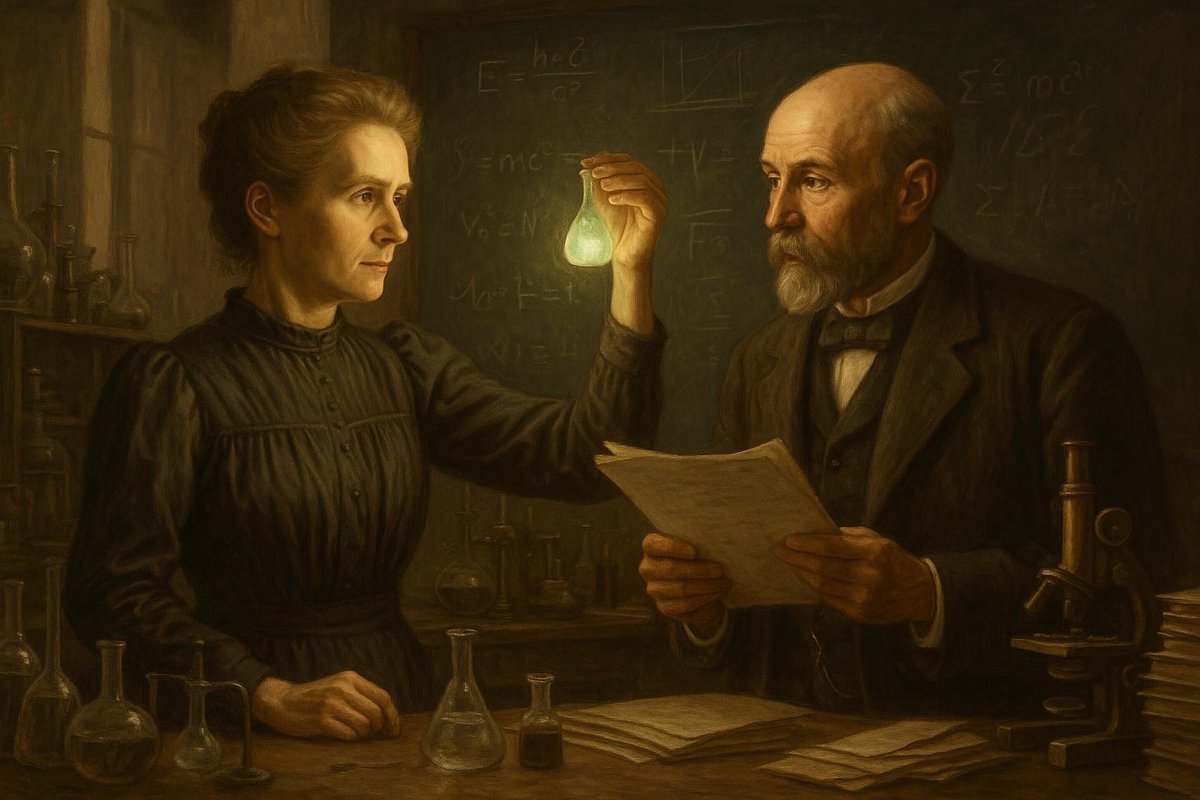
In the annals of scientific history, the discovery of radioactivity stands out as a pivotal moment. This breakthrough not only revolutionized our understanding of matter but also paved the way for significant advancements in both science and medicine. But what made this discovery possible, and why did it matter so profoundly? Interestingly, the origins of radioactivity are intertwined with a rich tapestry of scientific curiosity, competing theories, and at times, misconceptions. As we delve into this fascinating era, we begin to see why radioactivity mattered not just to scientists, but to the world at large.
The Origins: A Time of Curiosity and Misunderstanding
In the late 19th century, the scientific world was bustling with discoveries, yet also riddled with misunderstandings. The context for discovering radioactivity was set against a backdrop of groundbreaking research and intense curiosity about the unseen forces of the universe.
- Wilhelm Röntgen discovered X-rays in 1895, sparking an interest in invisible radiation.
- Henri Becquerel, inspired by Röntgen, stumbled upon radioactivity in 1896 while investigating phosphorescent materials.
- Many believed radiation was a form of light, reflecting a common misconception of the time.
Of course, it’s no wonder that these early researchers were initially confused. The idea that elements could emit energy autonomously was revolutionary. As time went on, these early misconceptions gave way to a clearer understanding of atomic structure and decay.
Competing Theories: Challenging the Status Quo
As radioactivity entered the scientific discourse, it clashed with established theories. The prevalent atomic models were not prepared to accommodate the phenomena being observed.
- Lord Kelvin and others believed atoms were immutable, conflicting with the concept of radioactive decay.
- Traditional chemistry focused on stability and order, while radioactivity suggested inherent instability.
- Despite initial resistance, the phenomenon of radioactivity could not be ignored, forcing a reevaluation of scientific principles.
Interestingly, these competing theories spurred debates that enriched scientific understanding. As researchers like Marie Curie delved deeper into radioactivity, they dismantled old paradigms and built new ones. The shift from seeing atoms as static entities to dynamic processes marked a significant turning point in scientific thought.
The Impact on Science and Society
The discovery of radioactivity did more than reshape scientific theories; it transformed society. The implications of this newfound knowledge reached far beyond laboratories.
- In medicine, radioactivity revolutionized cancer treatment through radiation therapy.
- In industry, radioactive isotopes became vital tools for imaging and diagnostics.
- Of course, radioactivity also led to the development of nuclear energy and weapons.
This dual-edged impact of radioactivity showcases its profound significance. While it offered tremendous benefits, it also presented ethical dilemmas and new responsibilities for society. The ability to harness vast amounts of energy, seen both in nuclear power and atomic bombs, underscored the need for careful consideration and control.
Lessons Learned: Embracing Uncertainty
As we reflect on the discovery of radioactivity, it’s clear that embracing uncertainty and challenging established norms are vital to scientific progress. The history of radioactivity offers valuable lessons that continue to resonate today.
- Scientific breakthroughs often arise from questioning the status quo.
- Early misconceptions can lead to greater insights and understanding.
- Collaboration and open-mindedness are crucial in unraveling complex phenomena.
Many people believe that radioactivity was a serendipitous discovery, yet it was the culmination of curiosity and persistence. As time goes on, the story of radioactivity reminds us of the importance of remaining inquisitive and adaptable in our pursuit of knowledge.
In conclusion, the discovery of radioactivity marked an era of transformation in science and society. It serves as a testament to human ingenuity and the relentless quest for understanding the natural world. As we continue to navigate the complexities of scientific discovery, radioactivity stands as a beacon of what can be achieved through curiosity and critical thinking.
Fuel Someone Else’s Curiosity
If you found this article enlightening, why not share it with a friend or colleague? By spreading knowledge, we can inspire others to explore the fascinating world of scientific history. Share this journey of discovery and let curiosity radiate through your circles!

Leave a Reply